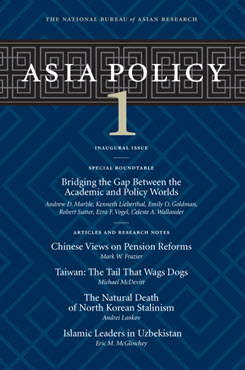Pensions, Public Opinion, and the Graying of China
This article analyzes popular beliefs and attitudes regarding pensions, pension reforms, and the future of retirement savings in China.
EXECUTIVE SUMMARY
MAIN ARGUMENT
As China approaches the “high tide” of population aging over the next fifteen to twenty years, the Chinese government will increasingly encounter a graying citizenry that holds a strongly state-oriented view of pensions and pension rights. After fifteen years of pension reforms, this cohort of citizens at or near the retirement age maintains strong beliefs that the government should play a major role in providing pensions.
POLICY IMPLICATIONS
- Pension reforms to date have resulted in the Chinese government’s acquisition of a large pension debt owed to current contributors when they retire. These pension requirements will act as a significant constraint upon central and local government budgetary resources in the future.
- The deeply held beliefs among the Chinese populace regarding an active state role in providing pensions could, especially given China’s lack of democratic mechanisms, constitute a potent threat to social stability should medical and pension costs go unmet.
- The graying of China will accelerate the “guns vs. butter” debate already occurring within Chinese leadership circles. Though the outcome of that debate is indeterminate, its resolution will reveal a great deal concerning the character and strategic intentions of the Chinese Communist Party.
About Asia Policy
Asia Policy is a peer-reviewed scholarly journal presenting policy-relevant academic research on the Asia-Pacific that draws clear and concise conclusions useful to today’s policymakers. Asia Policy is published quarterly in January, April, July, and October and accepts submissions on a rolling basis. Learn more


